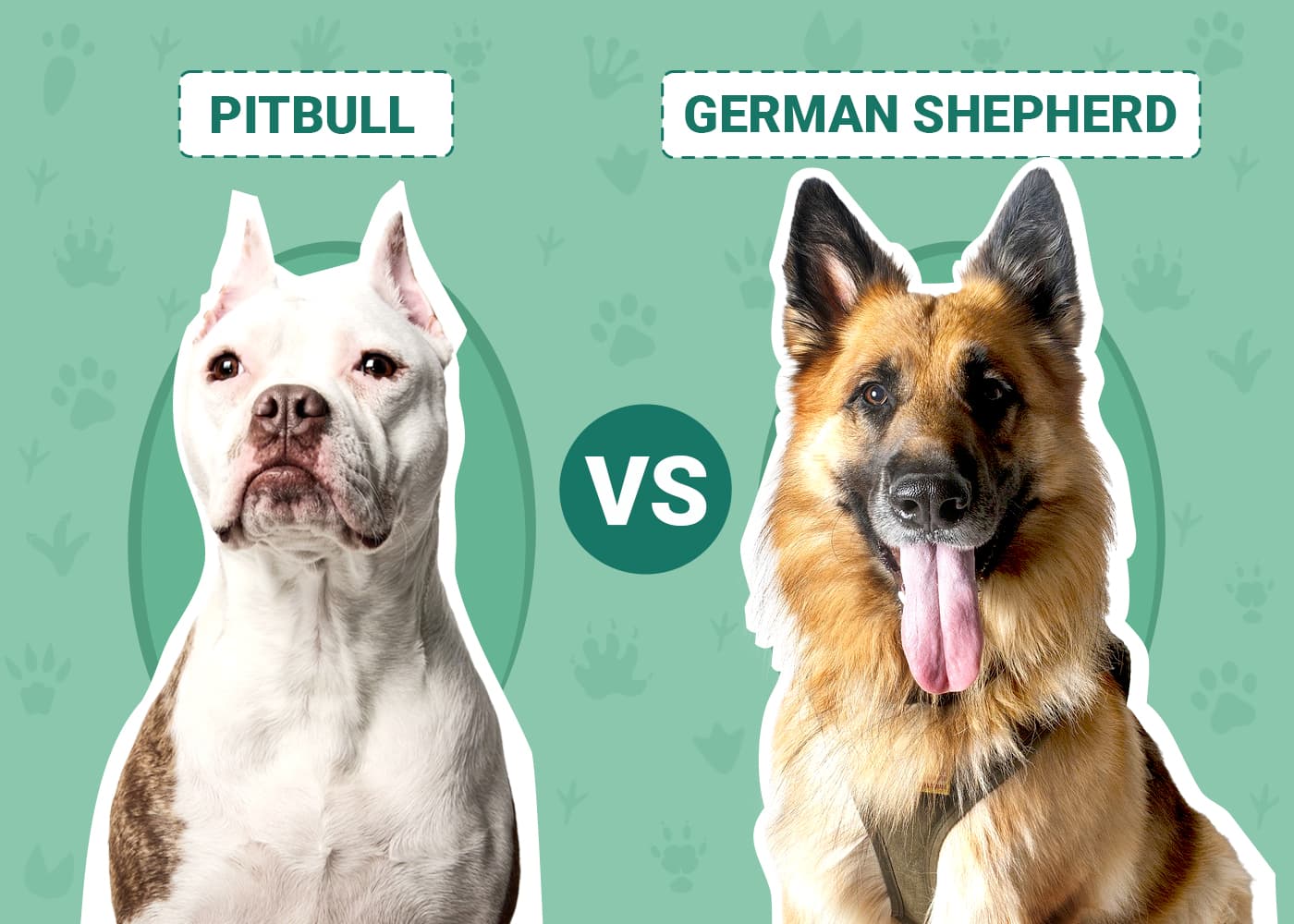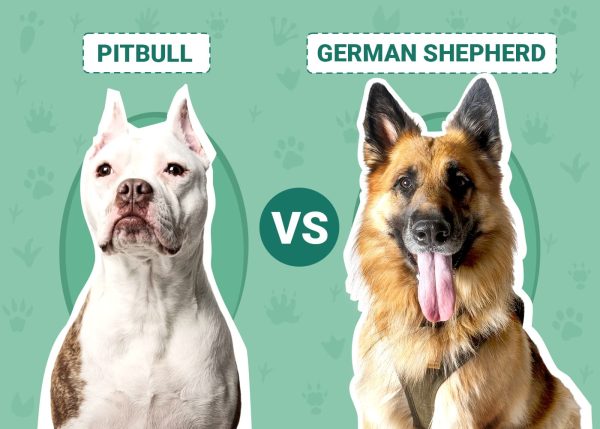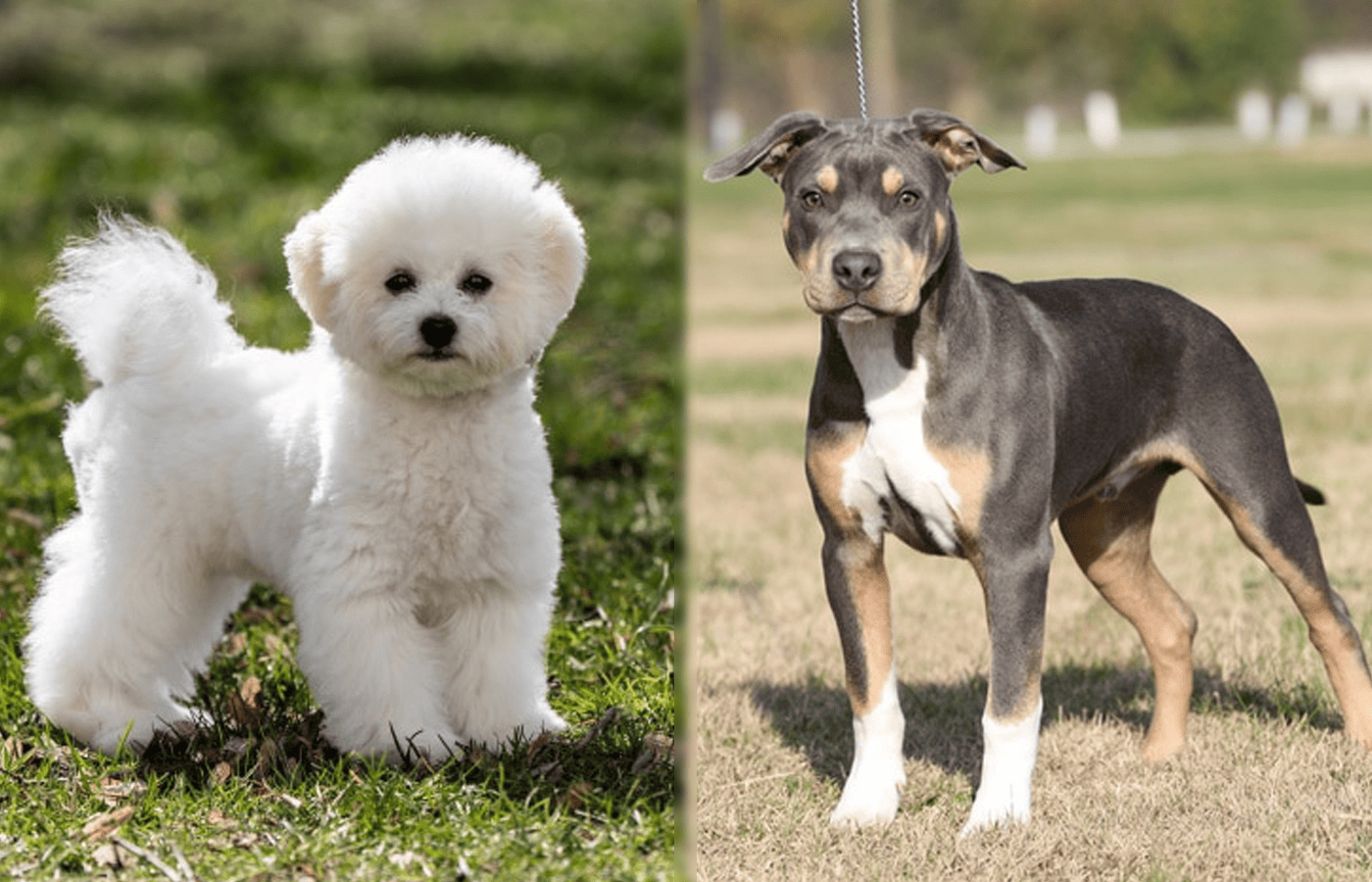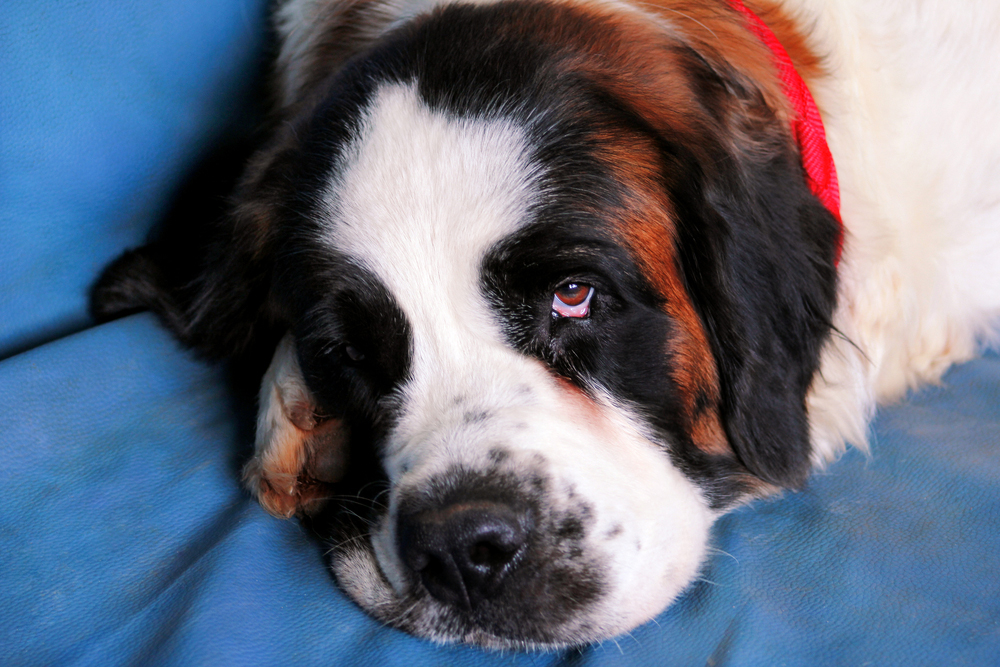Click to Skip Ahead
American Pitbull Terriers and German Shepherds appear on the same side of the canine coin regarding size, temperament, and general fierce dog reputation. But there’s more than intimidation with these dogs; they’re also known to be affectionate, loyal, and sweet with their owners.
When considering which of the two is right for you, a lot will hinge on your lifestyle and what you’re looking for in a dog. Differences in temperament and behavior are determined significantly by training and any maltreatment the dog may have received in its lifetime in the case of adoptees.
Let’s examine the essential aspects of each dog so that you’ll not hesitate to bring home the perfect pup for your household.

Visual Differences
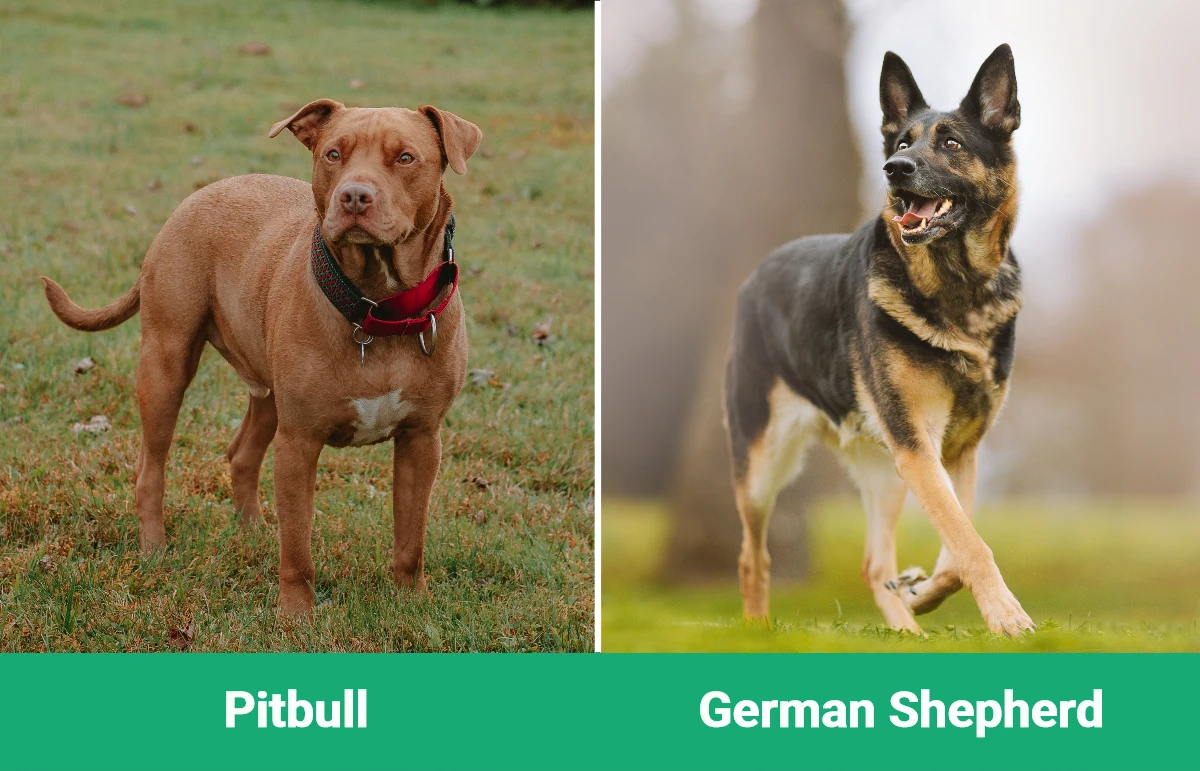
At a Glance
- Average height (adult): 19–22 inches
- Average weight (adult): 50–65 pounds
- Lifespan: 10–13 years
- Exercise: 2+ hours a day
- Grooming needs: Low to moderate
- Family-friendly: Yes
- Other pet-friendly: Prone to aggression
- Trainability: Intelligent but difficult and stubborn
- Average height (adult): 21–26 inches
- Average weight (adult): 75–95 pounds
- Lifespan: 10–14 years
- Exercise: 2+ hours a day
- Grooming needs: High or weekly
- Family-friendly: Yes
- Other pet-friendly: Often
- Trainability: Highly intelligent, loyal, eager to please
Pitbull Pet Overview
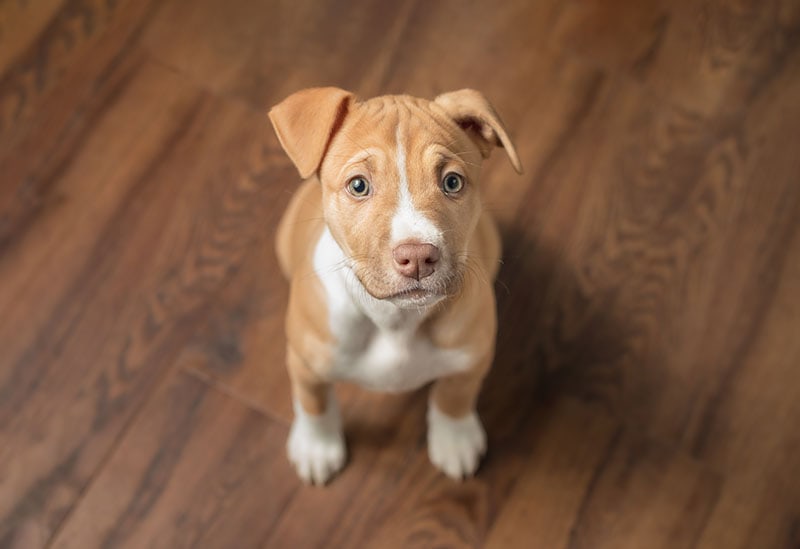
Pitbulls are popular dog breeds from America bred for different purposes.
They are descended from old English Terriers and Bulldogs, initially used for blood sports like bear and bull baiting. These sports were outlawed in England in the mid-18th century, and such practices advanced to dogfighting which is still an issue today. The Pitbull Terrier was also used as the US Army’s mascot during the world wars for its depiction of loyalty and determination.
Apart from being obedient and intelligent dogs, they are also known for their bravery and tenacity.
If not properly trained and socialized, Pitbulls can display traits of aggression and stubbornness, arising from the dog’s fighting heritage. They’re excellent guard dogs, but without proper training, they aren’t suitable around strangers, small children, and other pets.
Personality / Character
When considering the perfect family companion, it’s essential to note that Pitbulls are eager to please, affectionate, and loyal. They are quite protective and will become aggressive when confronted by strangers or if they perceive their owners are in danger.
In comparison, the Pitbull is more sociable than the German Shepherd and loves to be everyone’s friend, unlike the suspicion displayed by the latter. It’s a tough breed with an extroverted personality that comes off as easygoing and pleasant among family members.
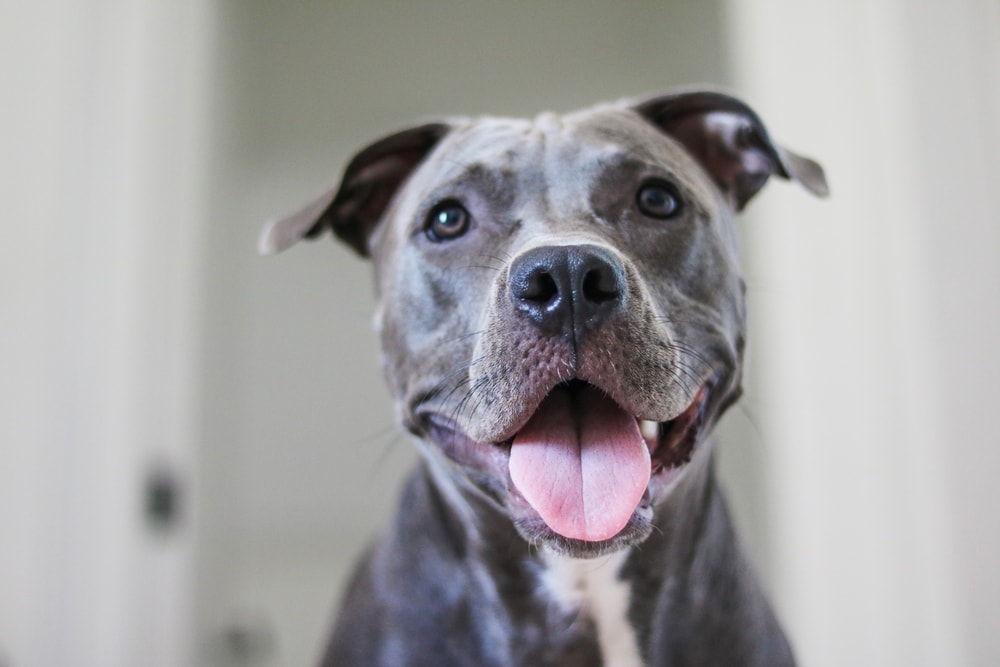
Training
As people pleasers, Pitbulls are easy to train since they’ll go to great lengths to make their owners happy. Training methods that utilize positive reinforcement and rewards work best for these dogs as they’ll not react well to negative tactics like physical punishment or shock collars.
These dogs require significant mental stimulation with their training, so you should include games, puzzles, and other solvable methods. Early socialization helps, especially with a Pitbull that exhibits fear and aggression when mixed with other dogs.
Health & Care
On average, the Pitbull is a moderately long-living dog, and most individuals live for between 12 and 16 years. However, healthcare significantly affects how long these dogs live, as the breed suffers from several genetic dispositions like elbow and hip dysplasia. Skin allergies and cerebral abiotrophy also affect them, reducing its activity levels, cognitive functions, and mobility.
A high-quality diet and medication will alleviate most of the health issues these dogs suffer from. Very active individuals need food high in proteins. Constant vet visits are also necessary to maintain their health and well-being.
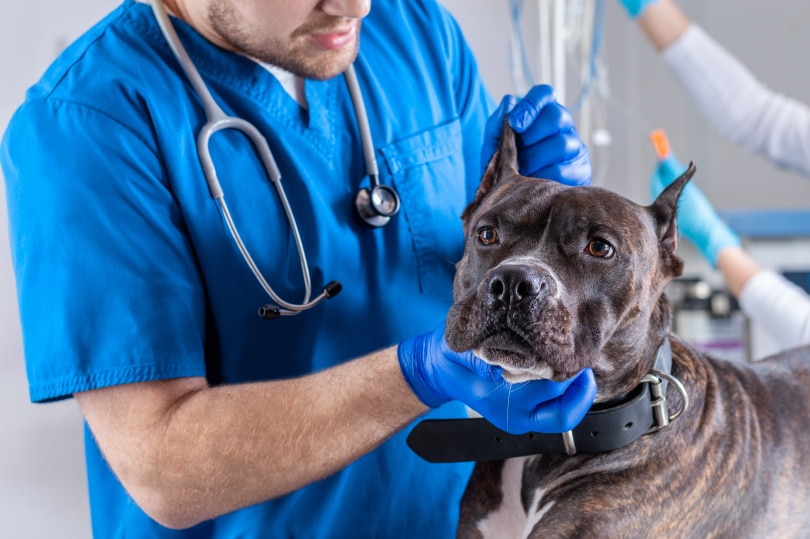
Suitable for:
Pitbulls make ideal pets for families without very young children or other pets, especially other dogs. However, they are generally friendlier and will dote on family members, unlike German Shepherds, who are aloof and disinterested.
Generally, Pitbulls are laid back as comforting companions, and early socialization and training will improve their patience and responsiveness to commands. Depending on the task, these dogs are full of personality and will make perfect family pets.
- Very protective of their owners and family members
- Highly sociable and friendly
- Intelligent
- Require minimal grooming
- Banned in some states
- Not recognized by the AKC
- Aggressive and destructive if not properly trained
- Suffer from separation anxiety

German Shepherd Overview
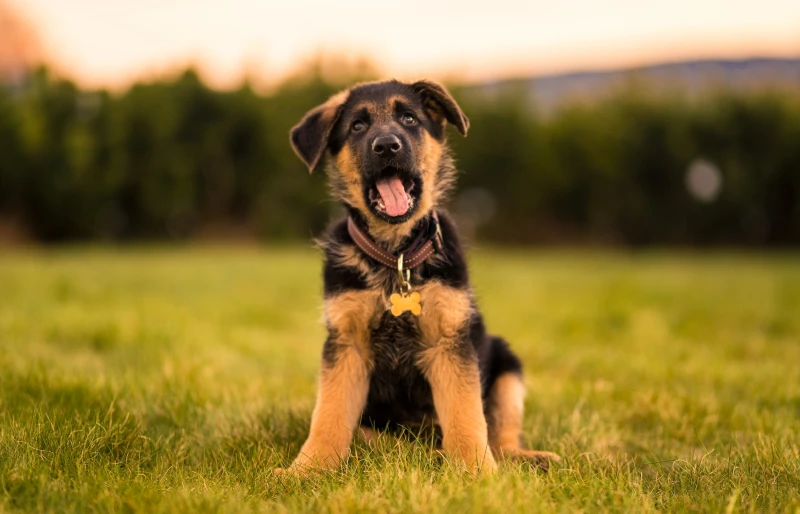
German Shepherds originated from dogs bred as sheepherders in the late 19th century. The German military also used these canines during the First and Second World Wars. The breed’s development is credited to German cavalry officer Captain Max von Stephanitz.
The dog’s reputation was muddled by its association with the Nazis but made a comeback in popularity, as it got ranked by the AKC.
The popularity of German Shepherds in America extends to the heart of culture, and the breed is the proud owner of two stars on the Hollywood Walk of Fame. It stands tall with a medium to long-length coat, depending on whether it’s long or short hair.
Personality / Character
German Shepherds are an intelligent and loyal breed that’s highly protective and obedient to its owners when adequately trained. They’re versatile, taking on different tasks with seriousness and capability, helped by their active lifestyles and keen sense of smell.
These dogs can serve at various capacities (service, police, herding, and as therapy dogs) due to their trainability and strong prey drive. They mistrust strangers and take their guard role seriously, meaning it can harm children, pets, and visitors if not well-trained and socialized early.
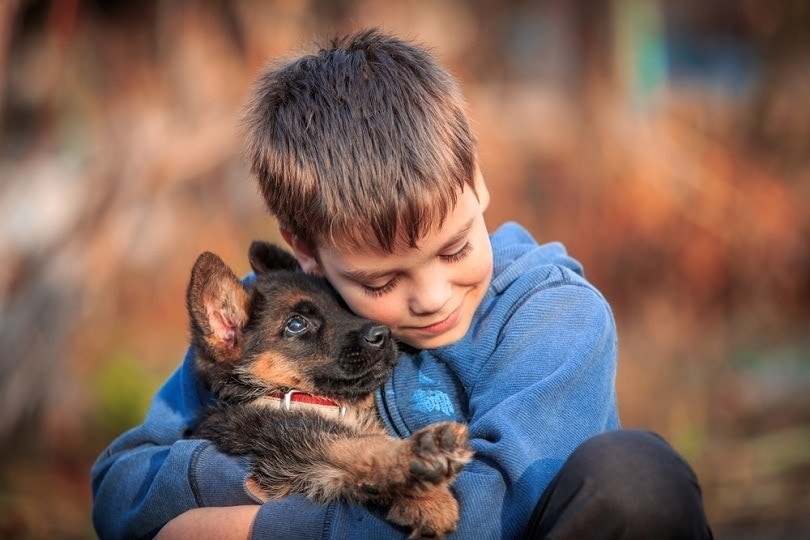
Training
Owing to their long history of working in military service canine careers, German Shepherds pick on new commands faster than Pitbulls. They prefer to spend more extended periods training due to an insatiable appetite for learning new things; they are more reward-driven than their counterparts.
Similarly, their high protectiveness means they’re bound to attack if they don’t see someone as part of their pack. But with a prey instinct that kicks in faster than most other canine breeds, this dog is easy to train for security and guard duties.
Health and Care
The German Shepherd is prone to sensitivity in the digestive system, thus requires a diet high in fiber. They’re also prone to elbow and hip dysplasia, eye ailments, and Degenerative Myelopathy that affects the spinal cord and hind legs.
Regular health checkups, exercise, and a high-quality diet are recommended to keep it in good health and prolong its lifespan. When it’s not working, the breed requires a lot of exercises. It should be walked at least twice daily and fed more according to size, age, and activity levels.
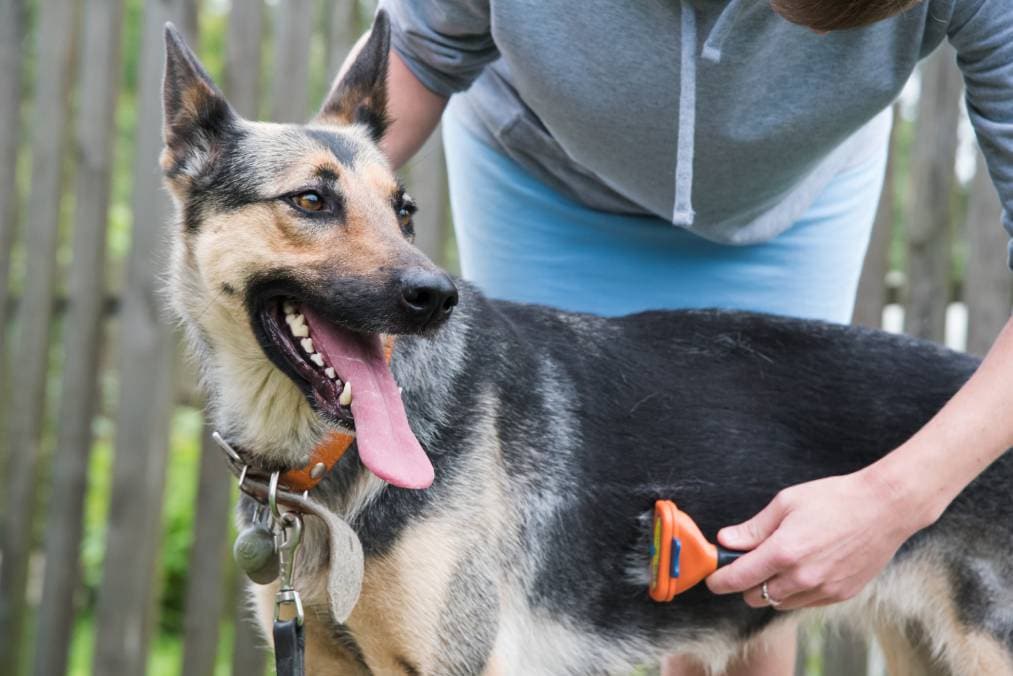
Suitable for:
Once well-trained and socialized, the German Shepherd becomes exceptionally comfortable around children and other pets. They make excellent watchdogs that will unnerve any intruder or unexpected stranger, and their average bite force of 238 PSI is quite significant.
These dogs will require an active household as their exercise requirements are higher than that of Pitbulls. They need mental and physical stimulation, and that coupled with their grooming needs, health requirements, and other factors may demand your time and money.
- Easy to train and control
- Obedient, loyal, and eager to please
- Great guard and service dogs
- Highly adaptable
- High-energy and active dogs
- Expensive to buy and maintain
- Don’t fare well in multi-pet homes
- Heavy shedders and require regular grooming
Differences/Similarities of Pitbulls and German Shepherds
Both Pitbulls and German Shepherds are known as friendly and polite dogs. However, these canines can exhibit destructive behaviors if bored or suffering separation anxiety. They can also be aloof with children or strangers; thus, careful socialization and training are necessary.
Young Pitbulls and German Shepherds are incredibly exuberant, requiring constant mental and physical stimulation. The Pitbull is considered more independent-minded and needs a knowledgeable owner to control the dog.
On the other hand, German Shepherds are noticeably less dangerous and easier to control, as evidenced by legislation that affects Pitbulls in the US. But that doesn’t mean that Pitbulls are a lost cause, as accounts of human attacks are disproportionate and haven’t accounted for mixed breeds.
Only when each of these dog breeds is trained for nefarious activities or when they’ve been abused or mistreated do they become highly aggressive.
Generally, both breeds are known for being loyal and sweet, especially when socialized properly.
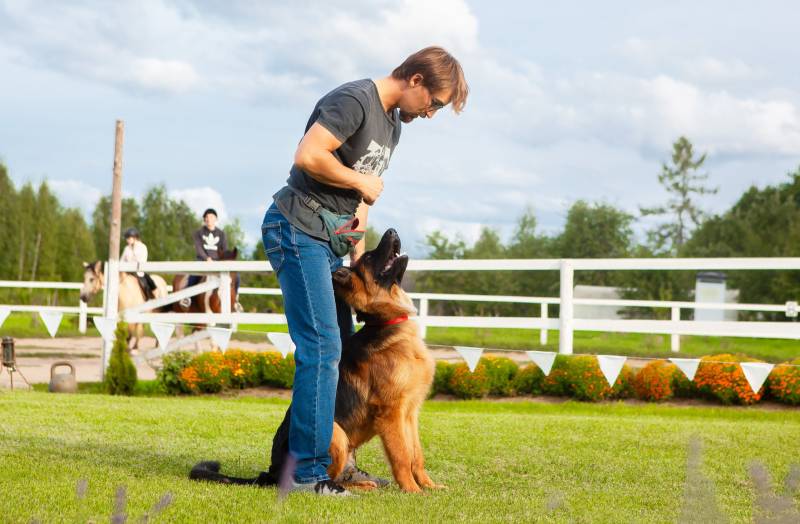

Which Breed Is Right for You?
Both breeds are reliable, versatile, and remarkable muscle dogs that potential owners need help picking apart. If you are searching for a sizable working dog with a severe outlook on life, the German Shepherd fits that bill, while the Pitbull is more easygoing and relaxed.
Pitbulls and German Shepherds are brilliant and easy to train and socialize, but the latter is more popular, attracting owners and institutions requiring security. However, choosing between the two breeds depends on personal preference and lifestyle.
In terms of expenses, a German Shepherd puppy costs approximately $400 more than a Pitbull, and you also have to consider its higher grooming needs, diet, and exercise requirements. Both breeds are inherently aggressive, but there’s always the potential that with proper training and socialization, aggression is a possibility.
See Also:
- Belgian Tervuren vs Malinois: Differences Explained (With Pictures)
- Jack Russell Terrier German Shepherd Mix: Pictures, Care Guide, Temperament & Traits
Featured Image Credit: Top – CrystalHeadbandz, Pixabay | Bottom – Anna Dudkova, Unsplash

